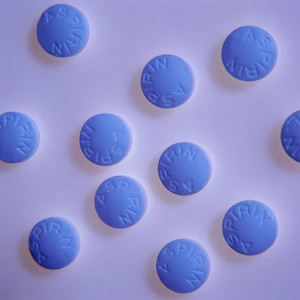A study of citizen petitions submitted to the US Food and Drug Administration (FDA) over the last 12 years finds that such petitions are being used by drug companies ‘in a last-ditch effort to hold off competition’ [1].
A citizen petition is a process provided by FDA for individuals and community organizations to make requests to FDA for changes to health policy.
The study carried out by authors from the University of California Hastings College of the Law, San Francisco, USA and was conducted using 12 years of FDA data. The authors examined all citizen petitions filed between 2000 and 2012 that could have delayed a generic drug’s market entry.
Out of the 158 petitions included, 60 (38%) were filed in the last year before generic drug approval. A trend that the authors say ‘suggests that the motive is delay’. The authors acknowledge that it is possible that the companies were not aware of the problem until late in the process. However, they also point to the fact that FDA has stated that many petitions ‘contained data that had been available to the petitioner well before the date of the petition’.
The authors estimate that ‘in some years, one of every five FDA citizen petitions has had the potential to obstruct generics competition’. They also pointed to the fact that ‘the FDA denies the requested action for approximately 80% of citizen petitions filed by competitors against drug companies’.
In an attempt to stop the abuse of the citizen petition system Congress enacted legislation in 2007 that required that the agency respond to citizen petitions related to generics within 180 days (shortened to 150 days in 2012). However, in its November 2014 Sixth Annual Report to Congress following up on 2007 legislation, FDA warned that congressional efforts to curtail the use of citizen petitions as a delay tactic may be ineffective, stating that the legislation may not be ‘discouraging the submission of petitions that are intended primarily to delay the approval of competing drug products and that do not raise valid scientific issues’. This is supported by evidence from this study, which found that the number of citizen petitions filed in 2012 was more than double that observed in 2003.
In November 2016, FDA published a Final Rule in the Federal Register with amended requirements for filing citizen petitions and petitions for stay of action to avoid unnecessarily delaying generics or biosimilars applications [2]. In the Final Rule the agency outlines how all citizens petitions or stays of action should include with their submission a verbatim certification statement specifying the date on which the information relied on in the petition first became known. The rule also specifies that FDA cannot delay approval of a pending generic drug unless ‘a delay is necessary to protect the public health’.
Despite these steps, the authors believe that further action is needed. They suggest that ‘stronger procedural blocks – such as requiring that drug companies file their citizen petitions within a year after the generic company files its application, or establishing that issues raised by petitions will be resolved on a separate timeline from the generic’s approval process – are needed to reduce incentives for strategic efforts to undermine competition’.
A recent Federal Trade Commission (FTC) complaint has highlighted the problem. The FTC announced on 7 February 2017 that it had filed a lawsuit charging Shire ViroPharma with abusing the citizen petition process to delay generic competition for its antibiotic Vancocin (vancomycin). The FTC alleges that to maintain its monopoly, ViroPharma waged a campaign of serial, repetitive, and unsupported citizen petition filings with FDA in the knowledge that the agency would not approve any application for generic vancomycin before it had resolved the petitions.
Conflict of interest
The authors of the research paper [1] did not provide any conflict of interest statement.
Editor’s comment
Readers interested in contributing a research or perspective paper to GaBI Journal – an independent, peer reviewed academic journal – please send us your submission here.
Related article
Teva again files citizen petition against generic Copaxone
References
1. Feldman R, Wang C. A citizen's pathway gone astray - delaying competition from generic drugs. N Engl J Med. 2017 Mar 1. doi:10.1056/NEJMp1700202. [Epub ahead of print]
2. GaBI Online - Generics and Biosimilars Initiative. FDA amends citizen petition rules to reduce delays to generics and biosimilars [www.gabionline.net]. Mol, Belgium: Pro Pharma Communications International; [cited 2017 Mar 17]. Available from: www.gabionline.net/Policies-Legislation/FDA-amends-citizen-petition-rules-to-reduce-delays-to-generics-and-biosimilars
Permission granted to reproduce for personal and non-commercial use only. All other reproduction, copy or reprinting of all or part of any ‘Content’ found on this website is strictly prohibited without the prior consent of the publisher. Contact the publisher to obtain permission before redistributing.
Copyright – Unless otherwise stated all contents of this website are © 2017 Pro Pharma Communications International. All Rights Reserved.








 0
0











Post your comment